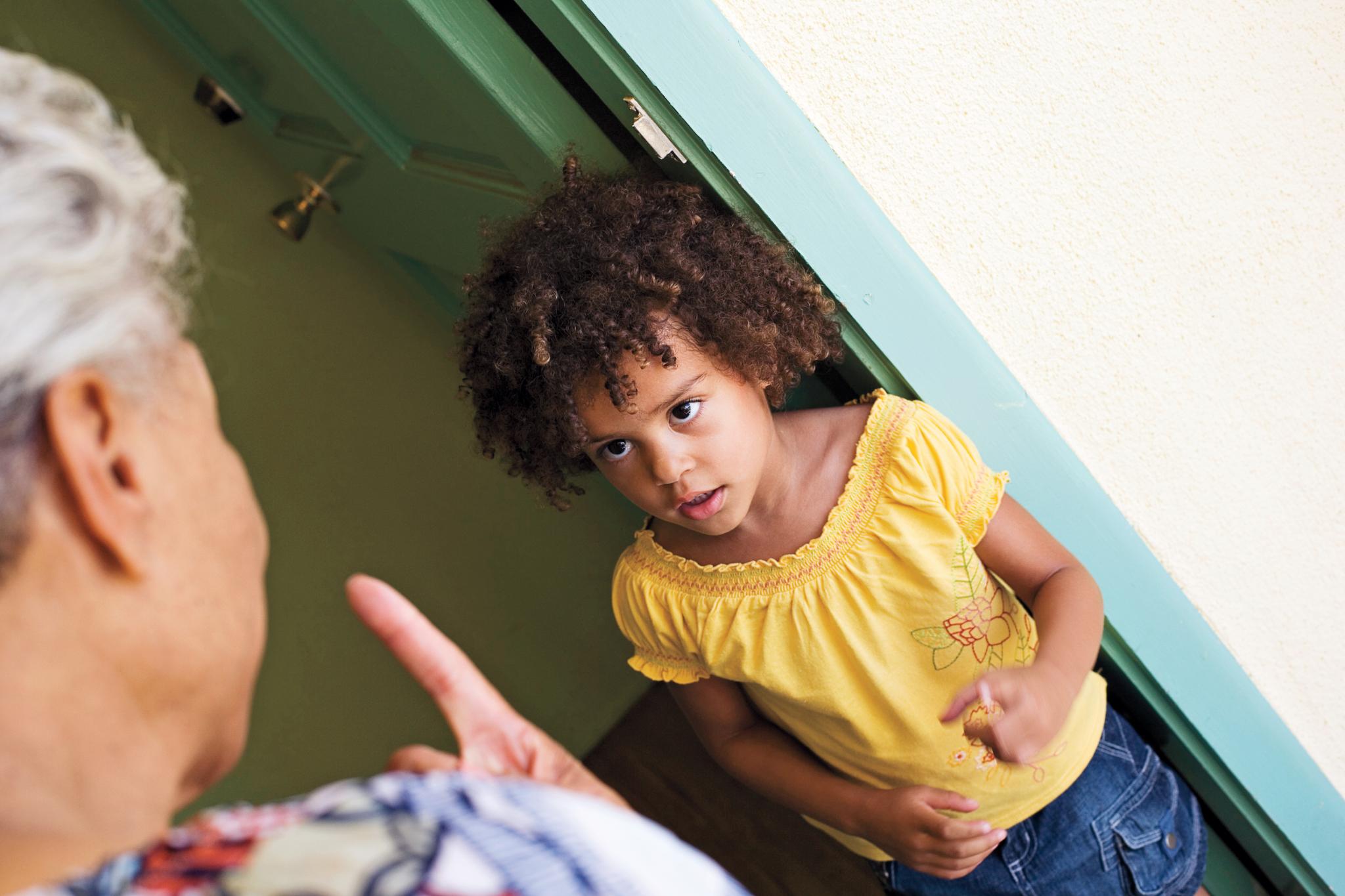
Four-year-old Jermaine had been mischievous and testing authority. Finally, his frustrated and tired mom looked him square in the eye, surprising herself with the words that escaped her lips: “Boy, you better straighten up and fly right!”
Kristin Boyd, 35, never expected to parrot sayings her mom used back in the day. But “often that’s just what works best,” says Boyd, of Reading, Pennsylvania, and also mom to 2-year-old Jaden. “Kids need to know you mean business.”
After decades of advice on the best way to bring up baby—from time-outs to reasoning exercises—the parenting tide may be turning. Younger moms seem to be leaning toward old-fashioned wisdom. Some psychologists agree.
“Old-school needs to make a comeback,” says Jeff Gardere, Ph.D., a New York City–based clinical psychologist. “We have created overindulged kids who are not self-sufficient and don’t understand boundaries.” He adds that mainstream advice often does Black parents a disservice, failing to factor in cultural nuances. “Let’s be real,” says Gardere. “Having to deal with issues like police brutality and racism means Black folks have to parent differently.”
HERE, SOME NO-NONSENSE MOM MANTRAS AND TACTICS YOU MAY WANT TO REVISIT:
1. “Because I said so.” Lindy Medley Vincent, fortysomething mom of three, ages 8 to 15, notes some explanation can help kids become thinkers. “But my child shouldn’t debate me for 30 minutes on eating vegetables,” she says. Constant back and forth can be draining. John Rosemond, family psychologist and author of Parenting by the Book: Biblical Wisdom for Raising Your Child (Howard), says ongoing debates can also be reckless. “Is a child supposed to challenge his teachers? His coach? Of course not,” he says. “Mind what you’re modeling.”
2. “Kids are better seen, not heard.” We want our children to have an opinion, but we also want them to learn to wait their turn and not interrupt. “Our parents were right,” says Michele Borba, Ed.D., an educational psychologist and author of 22 parenting books, including The Big Book of Parenting Solutions (Jossey-Bass). “Kids who can delay gratification and recognize it’s the ‘grown-ups’ turn’ acquire self-control and do better in life.”
3. “You live under my roof; I don’t care what Johnny is allowed to do.” Popular culture fosters a “keeping up” mentality among both children and adults, says Rosemond. It should be clear that your family lives by a strong set of values—no matter what everyone else does. Minnetonka, Minnesota– based Vincent says she uses the phrase to let her kids know they are a family of leaders, not followers.
4. The silent but effective “you’re gonna get it” look: The “it” doesn’t have to be a spanking, just a consequence. Boyd says even her 2-year-old understands when she’s thrown a flinty-eyed stare. “It boils down to who’s in control,” she says. “My kids do best with structure.”
5. “God don’t like ugly.” There’s a saying: God couldn’t be everywhere, so He created mothers. Years ago, parenting and spirituality were intertwined—especially in the Black home, says Gardere. While today’s caregivers might argue that phrases like “Jesus is always watching” promote guilt, Rosemond begs to differ. “If you want to talk old-school,” says Rosemond, “we’re talking Bible-based teaching of the fifth commandment, Honor your father and mother.… Today’s culture moves at lightning speed and the best way to stabilize culture is with fundamental traditions.”
Ylonda Gault Caviness is author of Child, Please: How Mama’s Old-School Lessons Helped Me Check Myself Before I Wrecked Myself (Tarcher), in bookstores this month.
